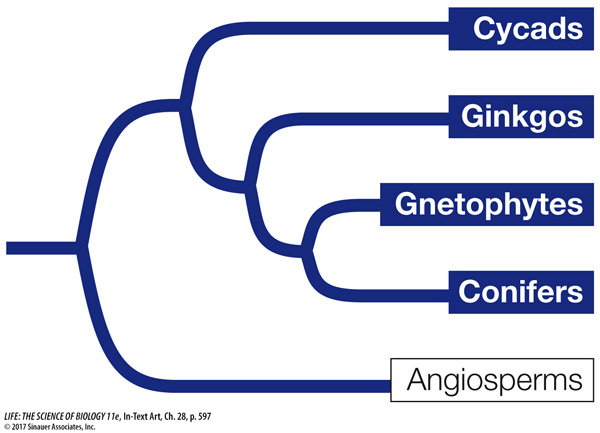key concept 28.2 Once Dominant Gymnosperms Still Thrive in Some Environments

The gymnosperms are seed plants that do not form flowers or fruits. Gymnosperms (which means “naked-
focus your learning
Some pines are fire-
adapted. The reproductive structures of conifers are contained in male and female cones.